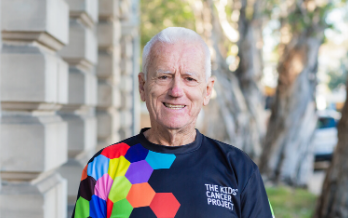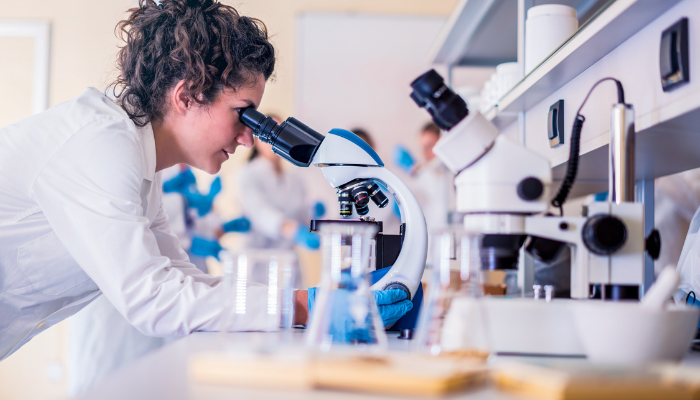Col Reynolds Fellow, Dr David Mizrahi

Recipient: Dr David Mizrahi
Institute: The University of Sydney
Funding: $502,680.00
Motivation
Given its many physical and psychological benefits, I’ve always been passionate about exercise and how it helps people. However, during my undergraduate studies, I noticed there were very few lectures on how exercise can help cancer survivors, which motivated me to learn more. So, I conducted my first research project by delivering an exercise program to ovarian cancer patients undergoing chemotherapy.
Seeing how much these women benefited from doing physical activity I was further motivated to educate doctors, nurses, and other health professionals to promote exercise to their patients. By doing this I realised I could be part of a cultural shift to change how people with cancer are managed.
I then commenced work at a children’s hospital and quickly realised that most children with cancer are not getting the support needed for their physical activity. To gain a better understanding of what these kids needed and how I could help them by encouraging them to participate in physical activity so they could strive towards living happier and healthier lives, I undertook a PhD from the University of NSW.
Researching the benefits of exercise
All children should be able to exercise and my research affords the opportunity for kids affected by cancer to do so regardless of their cancer type or capabilities. The aim of this research is to make a child’s post-treatment transition a little smoother. We’ll run programs in both hospitals as well as in a post-treatment setting for children attending Camp Quality recreational camps.
The Col Reynold Fellowship will help support three specific research projects investigating the role of physical activity in children impacted by cancer.
- Project 1 will survey families and health professionals to understand what types of exercise programs and services they would like to receive, better informing the design of the programs we deliver.
- Project 2 will identify the physical needs of kids’ post-cancer treatment, to further refine the programs we create.
- Project 3 will bring everything together as we design and deliver a randomised trial of exercise during treatment with a focus on creating a sustainable, inclusive plan so a child’s family, friends, and school can continue the program after the study has finished.
The physical activity will be tailored with a focus on improving a child’s belief in their own abilities. What I prescribe might differ for each child - based on their diagnoses, physical capabilities, age, maturity level, and interest in exercise, but each program will have the same goal, of offering some physical activity rather than none. The ultimate goal is to improve the physical and mental health of children undergoing cancer treatment.
Combatting cancer’s side effects
It’s normal for children to be physically active in their formative years, but unfortunately, cancer can take that normality away. We know that kids impacted by cancer can be susceptible to a lifetime of health issues, but exercise can help alleviate this.
My research will provide children, young people, and families with another tool to combat the side effects that cancer and treatment brings. We know from adults with cancer that exercise can help reduce fatigue, improve mood, strengthen the heart and muscles, and reduce the risk of cancer returning or developing other conditions.
By prescribing physical activity to children from the outset of their treatment, we anticipate that they will be able to better tolerate their treatment, both physically and mentally, while also establishing better health behaviours that can continue after treatment helping to improve their health in the long term.
Given many kids with cancer in Australia and around the world do not receive tailored physical activity support, my research is both timely and important, as it offers an opportunity to receive an exercise program that is tailored specifically to their needs, interests, capabilities, and social structures.
If we can foster an environment where children feel safe and encouraged to be physically active, they will be more likely to carry these behaviours out of this hospital and into their survivorship years, so they can live a healthier life while reducing their risk of many conditions that being physically active can help with (such as cardiovascular disease, diabetes, and obesity).
Col Reynolds Fellowship
I’m so grateful to be awarded a Col Reynolds Fellowship from The Kids Cancer Project. It will help my career as it gives me the opportunity to become a leader in the childhood cancer and exercise field, which is rapidly growing. I’m excited to conduct this research with kids and families to offer them an opportunity to improve their health during what is a very challenging time.
Conducting this project will increase the likelihood of attracting even larger funding from the government to expand and roll out the study to more hospitals around Australia, so I’m very motivated to continue developing new knowledge regarding how to best provide exercise for children impacted by cancer around Australia to help improve their health and lives.
A message of thanks
I’m very grateful for the opportunity to conduct this important research with these children, who I believe will benefit and improve their challenging experience. There are so many new discoveries that help patients which are only possible due to research funding.
So many research projects would not be possible without the generosity of the donors, so a huge thank you again for generously supporting The Kids’ Cancer Project, my research, as well as the other Fellows, as we all strive towards our shared goal of improving the lives of children impacted by cancer.
I’m really grateful for the opportunity to conduct research that by providing an active approach to childhood cancer can hopefully shift the culture and improve the lives of kids impacted by cancer.
Find out more about the Col Reynolds Fellowship
With an investment of over $7.6 million, The Kids’ Cancer Project is ensuring that some of the best and brightest young researchers in Australia can further their careers and most importantly, their impact on childhood cancer research.


Read more from past recipients
From a field of outstanding candidates across Australia, The Kids’ Cancer Project has funded the next generation of childhood cancer researchers. Their science-backed research is sure to deliver breakthroughs across a range of areas relating to childhood cancer.

